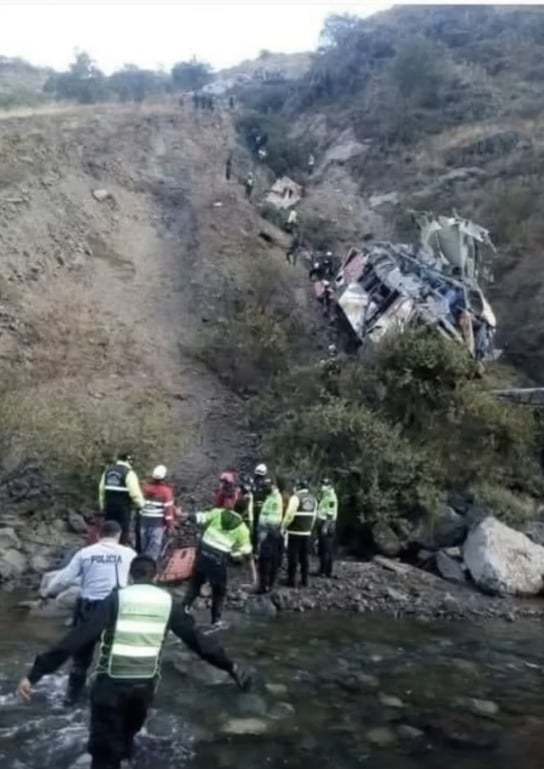The bus company involved is under investigation, with officials reviewing maintenance records and driver certifications. Government agencies have called for stronger safety inspections and tighter controls over long-distance transport operators.
Bolivia’s President Luis Arce expressed deep condolences to the families affected by the tragedy. He announced plans to improve road safety nationwide and enforce stricter standards for vehicles and drivers. “This tragedy must not happen again,” he said, promising new safety reforms and more rigorous transportation oversight.
Local residents say the accident is a painful reminder of ongoing safety issues. The road between Potosí and Sucre, often referred to by drivers as “El Camino de la Muerte” (The Road of Death), has a long history of fatal crashes. Many hope this disaster will finally lead to real improvements in infrastructure and enforcement.
At nearby hospitals, families gathered anxiously for news about their loved ones. One survivor, Mariela, shared that she was asleep when the bus began to shake. “People started screaming,” she recalled. “The next thing I remember was waking up on the rocks. I don’t know how I made it.”
Doctors report that many survivors are suffering from serious injuries, including fractures and internal trauma. Blood donations have been requested, and communities nearby have come together to help however they can.
Bolivia has one of the highest road accident rates in South America, with thousands of deaths and injuries reported each year. Experts say the main causes include speeding, driver fatigue, lack of road barriers, and poor vehicle maintenance. Many long-distance drivers work long hours under difficult conditions, increasing the risk of human error.
Safety advocates are urging the government to take stronger action — from installing guardrails and warning systems to ensuring vehicles pass regular safety inspections. Some reforms have been discussed in the past but have seen slow progress due to limited funding.
In the days following the tragedy, vigils were held in Potosí, Sucre, and La Paz. Citizens lit candles and prayed for the victims and their families. For many Bolivians, the accident represents not just another tragic event, but a call for lasting change.
As the nation mourns, the hope remains that this loss will finally lead to safer roads and stricter accountability. The memory of those who died in Yocalla stands as a solemn reminder of how urgent that change has become.

